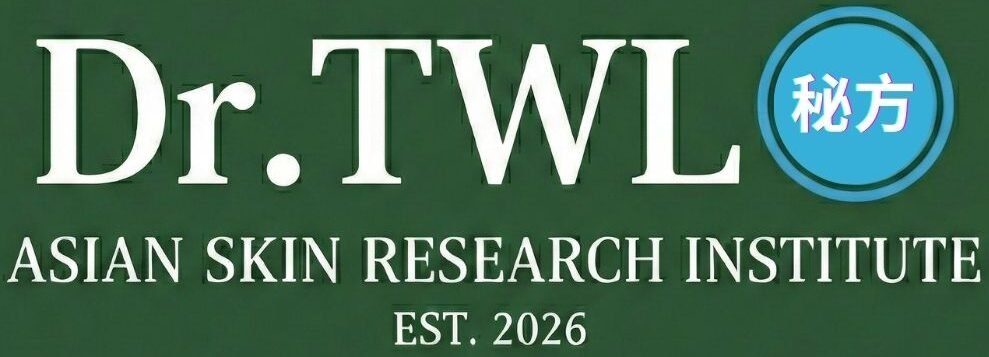Looking for a Singapore Dermatologist? Let’s understand a little bit about dermatology. Dermatology is a specialised branch of medicine. The specialty covers specific conditions that encompass the skin, hair and nails, and is considered traditionally a branch of Internal Medicine. Dermatology also entails surgery because of skin cancers as well as superficial lumps and bumps. Superficial skin lesions can be either benign or malignant. These often require removal by surgery. Surgical excision is required, for example, for pre-malignant or cancerous lesions.

A qualified dermatologist is trained extensively in Singapore. A Singapore dermatologist has undergone at least eight to 10 years of postgraduate training before becoming board certified. This starts with five years of medical school, where basic medical and surgical knowledge is tested. After one year of housemanship, applicants to dermatology can then start to apply for the dermatology residency program, which is part of Internal Medicine. In this process, they go into postgraduate studies involving both medical and surgical aspects of dermatology. Pathology is an important field in dermatology training. Dermatologist are trained to identify historic pathology. This refers to cell and tissue appearances of skin diseases that is important in diagnosis.

In the last five to eight years, especially in Singapore, there has been a proliferation of skincare doctors, skincare experts, and aesthetic doctors who claim to be practising some form of dermatology. An internet search of the term “Singapore Dermatologist” throws up multitudes of results and listings that hardly brings clarity to what it actually means. What does being a Singapore Dermatologist truly entail? In the following, we seek to shed some light to the term.
Checking the Accreditation of a Singapore Dermatologist
According to the Ministry of Health (MoH) Singapore guidelines, only accredited dermatologist are qualified to be considered specialists in the field of skin, hair and nails. The correct practice of dermatology would be required in order to qualify an individual as a trained Singapore dermatologist. This includes having to learn to diagnose and treat over 3,000 known diseases of the skin, hair and nails, and also cosmetic concerns. The proliferation of skincare experts and skincare doctors, who go by many of these names including aesthetic doctors, is deeply worrying. This is because many of them actually even mislead the public in terms of their qualifications.
A diploma in dermatology does not qualify an individual to be a dermatologist. Neither does showing up in a “Singapore Dermatologist” internet search guarantee that one is a dermatologist. It is important for the public to first check the doctor’s qualification which can be conveniently accessed at the MoH website.
They should also raise to the Dermatological Society of Singapore if they encounter any physician who intentionally misleads them to believe that they are dermatologists. You may refer to the Dermatological Society of Singapore’s website for their ongoing public education campaign on who is a skin doctor. There is a QR code at the website, which you can scan to help you identify if the said doctor is indeed a dermatologist that they claim to be.
Medical Treatment by Singapore Dermatologist
It is very important to understand that the skin is an organ to be respected as much as the heart, the lungs and the liver. The skin is in fact, the largest organ of the body. Besides that, the conditions that affect individuals across the different age groups are also unique. A Singapore Dermatologist is uniquely trained in paediatric, adult and geriatric dermatology. They care for people across the age groups.
Examples of paediatric dermatology cases would be birthmarks. Birthmarks are not just a cosmetic concern, as certain types of birthmarks known as haemangiomas can also be function threatening. An example would be a haemangiomas growth that threatens the child’s eyesight.
In an adult or even in a younger person, it is not uncommon to diagnose skin cancers. The most dangerous type of skin cancer we are aware of is a melanoma, and melanomas are deadly if left unchecked. However, if diagnosed and treated with excision early, and with chemotherapy if required, it is treatable.

Common conditions such as eczema, may be overlooked or disregarded by many as a minor skin concern. What a Singapore dermatologist knows and is empowered to do is to alleviate the immense suffering associated with intense itching. This severely troubles school going children when they are trying to pay attention in class. At home, it is even more unbearable, as it can disrupt sleep. This is a vicious cycle. As the child without appropriate dermatological intervention and treatment by a dermatologist will find it hard to pay attention during the time in school.
An interesting aspect of dermatology and what highlights the importance of the work of a Singapore dermatologist, is that many severe internal organ failures. This includes liver failure and kidney failure, for example, which can manifest with skin symptoms.
Pruritis is an example of such a dermatological condition. It is a generic term to describe excessive itch occurring all over the body with minimal skin signs. By skin signs, dermatologist, refer to the presence of redness, flaking and scratch marks. When these signs are missing, and the individual complaints of itch, then it is a cause for further investigation. Many times, dermatologists are the first to pick up severe internal organ diseases such as liver cancers and pancreatic cancers because of this.
Hair Loss Treatment by Singapore Dermatologist
Dermatologists, are also very important physicians, when it comes to treatment of scalp issues and hair loss. Hair loss is a troubling condition that can disturb one’s self esteem. In Singapore, dermatologists are the only accredited specialists to treat scalp and hair problems. Many members of the public believe that going to a trichologist is the answer for their scalp problems. However, this is not the case. Trichologists are not medical doctors, and definitely not all medical doctors who offer to treat hair loss are dermatologists.

Why is it important to have your hair loss treated by an accredited Singapore dermatologist? There are many causes of hair loss. Alopecia Areata is an example of such a condition that can progress rapidly, and has more severe, underlying causes, such as an autoimmune disease. It is important for dermatologists, to identify and treat causes of hair fall early in order to prevent long term disfigurement. This is also to pick up any underlying disease. For example, Alopecia Areata can be associated with thyroid dysfunction.
What is a Board Certified Dermatologist?
As you would have seen by now, the work of a Singapore dermatologist involves extensive training and accreditation. However, with the advent of social media, there has been an influx of these skincare and haircare experts. Some of whom have a medical degree, many of whom do not. It is important in terms of public perception that the skin and the hair has to be respected as important organs that needs to be treated by an accredited specialist.
Let us now discuss a little more about board certification. Fundamentally, it is not right to call yourself a dermatologist if you are not. At least in Singapore, the US, Europe, and Australia, we know that there are medical boards which provide board certification. This means that the health authorities are regulating the use of this term. Consequently, the board certification that a dermatologist receives is important because it is a sign of standardised international training relevant in the treatment and care of dermatological conditions.
How can you tell if your dermatologist is board certified? In the US, the letters FAAD appear as a qualification after the name of the doctor. This stands for Fellow of the American Academy of Dermatology. In Singapore, look up for the term FAMS, which is referring to Fellow of the Academy of Medicine Singapore, with the note the term dermatology after that. You can generally check on a dermatologist’s website, if they are board certified.
However, it has caught our attention that many aesthetic doctors have been misleading, in terms of their representation of themselves using the word dermatology throughout their bio, without stating that they are a dermatologist. Many of them are also touted as skincare specialists, but there is no regulation on such a term.
In fact, aesthetic doctors are general practitioners who should, according to the Ministry of Health – Singapore Medical Council guidelines, state themselves as general practitioners. Aesthetic medicine itself is not an accredited specialty. Again, we refer you to the Dermatological Society of Singapore’s website to check how to determine if your doctor is indeed a board certified dermatologist.
Why should you choose a board certified dermatologist in Singapore?
First of all, the skin itself is a complex organ that links to many internal diseases. Even for conditions such as acne, eczema, these are optimally treated by an accredited skin specialist with many years of experience, training and expertise.
In addition, If you suffer from hair fall, it is important to get the attention of a dermatologist as soon as you notice it. This is because hair does take time to grow back. A Singapore dermatologist is well positioned to advise on the evidence based treatments available, and also to work out for any underlying causes of hair fall which can be life threatening. By life threatening, we refer to internal diseases such as thyroid function problems. Thyrotoxicosis is an extreme state of high thyroid levels that can present with hair loss, and can also cause lethal heart rhythm problems.
Besides, for individuals who think that they only have pigmentation problems and visit an aesthetic doctor, many of these fail to realise that pigmentation can sometimes be skin cancers. A common example is lentigo maligna. Lentigo maligna is an extremely dangerous, aggressive form of melanoma that can appear on the face looking like a sunspot or a freckle. It is something well studied by dermatologists. An important step in management is to do a punch biopsy and have the results read by a dermatopathologist.
If you are struggling with your skincare routine, it can be confusing. In terms of information out there and who to listen to, there seems to be many experts. It is important to understand that beautiful looking skin is actually healthy skin. A Singapore dermatologist is best poised to advise you on the availability of treatment and maintenance options in a skincare routine that will help you achieve healthy and hence beautiful looking skin.
TWL Specialist Skin & Laser Centre is a dermatology clinic helmed by accredited Singapore dermatologist Dr. Teo Wan Lin. Dr. Teo specialises in skin, hair, nail disorders, removal of skin growths, skin cancer & surgery as well as aesthetic dermatology. She is a key opinion leader in cosmeceutical skincare and author of the Skincare Bible. The clinic is known for its acne treatments, especially in adult hormonal acne & maskne. Dr. Teo developed the best-selling Multi-CERAM as a “Prescription Emollient Device”, a steroid alternative to treating eczema with anti-inflammatory botanicals. Her clinic specialises in the use of evidence-based cosmeceuticals as part of rosacea treatment, offering also teledermatology and an onsite customised skincare pharmacy.

Discover our dermatologist formulated skincare solutions at our in house pharmacy. WhatsApp us for enquiries.


